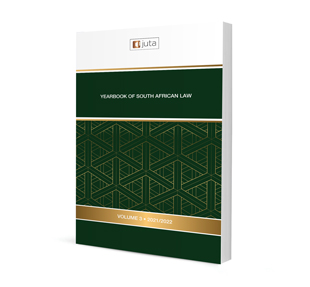Environmental Law

Environmental Law
Author Michael Kidd
ISBN: 978 148514 016 0
Affiliations: BCom LLB LLM PhD (Natal); Professor of Law, University of KwaZulu-Natal, Pietermaritzburg
Source: Yearbook of South African Law, Volume 3, p. 529 – 564